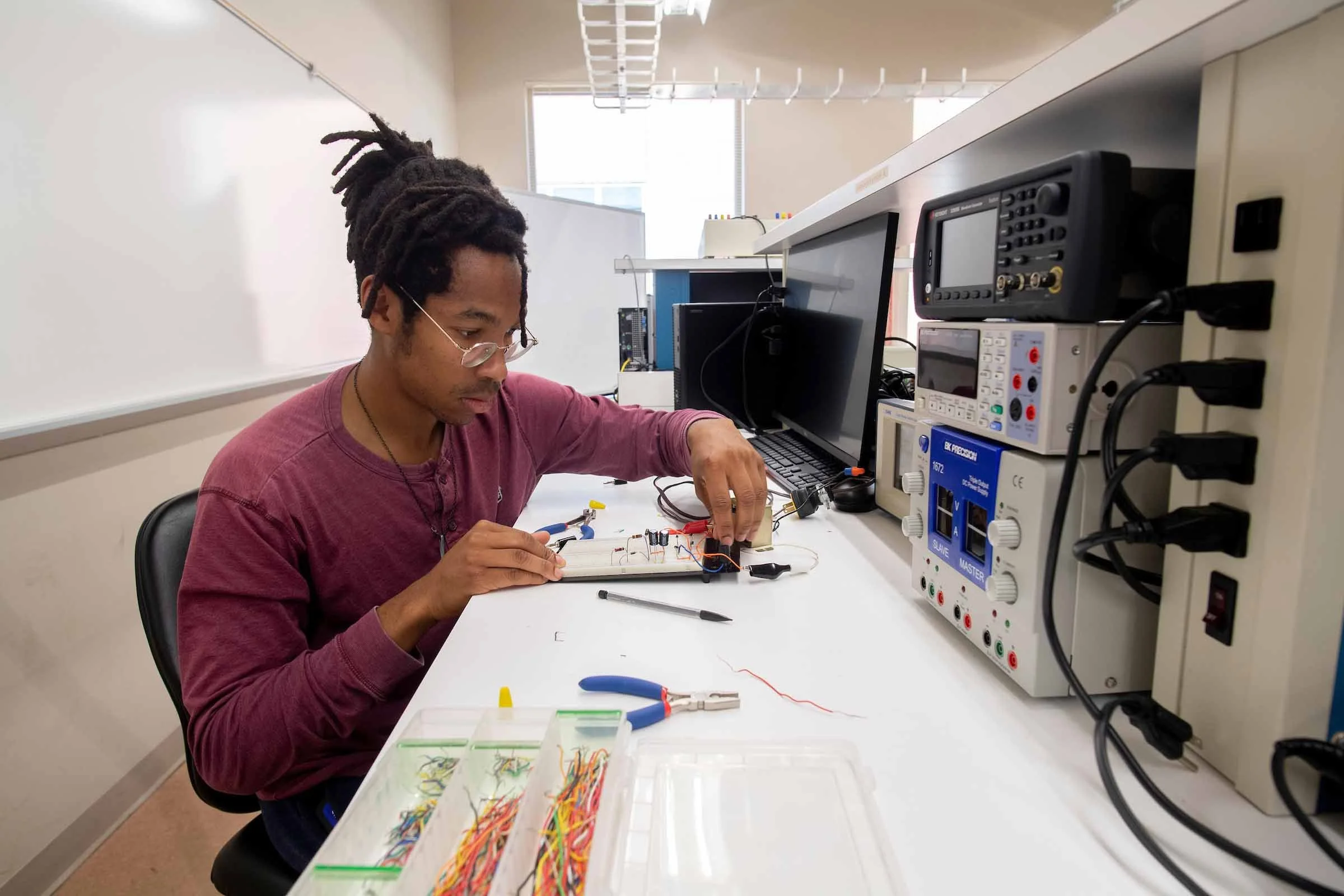What’s the Difference? Engineering vs. Engineering Technology
When students express interest in pursuing a degree or career in engineering, one question often comes up—what’s the difference between engineering and engineering technology? The two sound similar, and both lead to exciting careers in STEM. But they are not the same.
Understanding the difference can help students and families make more informed choices about courses, colleges, and career paths. At Kente Academy, we want to break it down clearly so students know what each path offers and how to choose the one that fits their goals.
Engineering: The World of Design and Theory
Engineering is a broad and well-known discipline that involves using math and science to design, model, and analyze systems or products. Engineers often focus on why things work the way they do and use theoretical knowledge to develop new solutions.
In college, engineering students take advanced courses in calculus, physics, computer science, and chemistry. Their work may involve heavy research, simulations, or creating new designs from scratch. They work in areas like:
• Mechanical engineering (designing machines and engines)
• Civil engineering (designing buildings, roads, bridges)
• Electrical engineering (working with circuits, electronics, power systems)
• Chemical engineering (working with materials, fuel, medicine)
Engineers often go on to work in research, development, or leadership roles at companies, labs, and government agencies. They’re the people who invent, model, and build systems from the ground up.
Engineering Technology: The World of Application and Implementation
Engineering technology is more focused on how things work in practice. It’s hands-on and application-based. Instead of designing a new engine from scratch, an engineering technologist might be the person who tests, maintains, or improves it on the job.
In college, students in engineering technology programs still study math and science—but with a more practical approach. They often do more lab work, internships, and field training than theoretical math or physics. Their careers may involve:
• Product testing
• Manufacturing and production
• Field service and troubleshooting
• Quality control and systems maintenance
Engineering technologists work closely with engineers but are more likely to be found on-site, running machines, building prototypes, or solving technical problems in real time.
Key Differences at a Glance
Feature Engineering Engineering Technology
Focus Design and Analysis Application and Implementation
Math & Science More Theoretical More Practical
Coursework Heavy in Calculus, Physics More Lab-based and Hands-on
Careers Research, design, development Testing, manufacturing, technical roles
Degrees Bachelor of Science in Engineering Bachelor of Science in Engineering Technology
Which One is Right for You?
There’s no better or worse option—just different strengths. Engineering may be the right path for students who enjoy theory, abstract thinking, and inventing new systems. Engineering technology may be better for those who prefer hands-on learning, fixing real-world problems, and building or operating systems.
Students should ask:
• Do I prefer working with numbers and models, or building and testing?
• Do I enjoy theoretical math, or do I like seeing things in action?
• Am I aiming for research and innovation, or direct technical work?
Understanding your own learning style and interests can make the decision easier—and more rewarding
How Kente Academy Can Help
At Kente Academy, we guide students and families through the complex world of STEM decision-making. Whether your child is exploring engineering or technology, we offer:
• Personalized academic advising
• College and career planning
• Math and science tutoring that builds strong foundations
• Project-based learning to discover interests early
• Mentoring from STEM professionals who’ve walked the path before
Our goal is to empower students to make informed, confident decisions about their future—whether they’re building the next generation of robots or keeping the world’s systems running smoothly.
Final Thoughts
Engineering and engineering technology both play critical roles in the world we live in. From designing skyscrapers to maintaining energy systems, both fields offer meaningful, impactful careers. Knowing the difference helps students choose the path that’s best for them—not just for college, but for the lives they want to build.
At Kente Academy, we believe that informed students are powerful students. And we’re here to help every step of the way.


